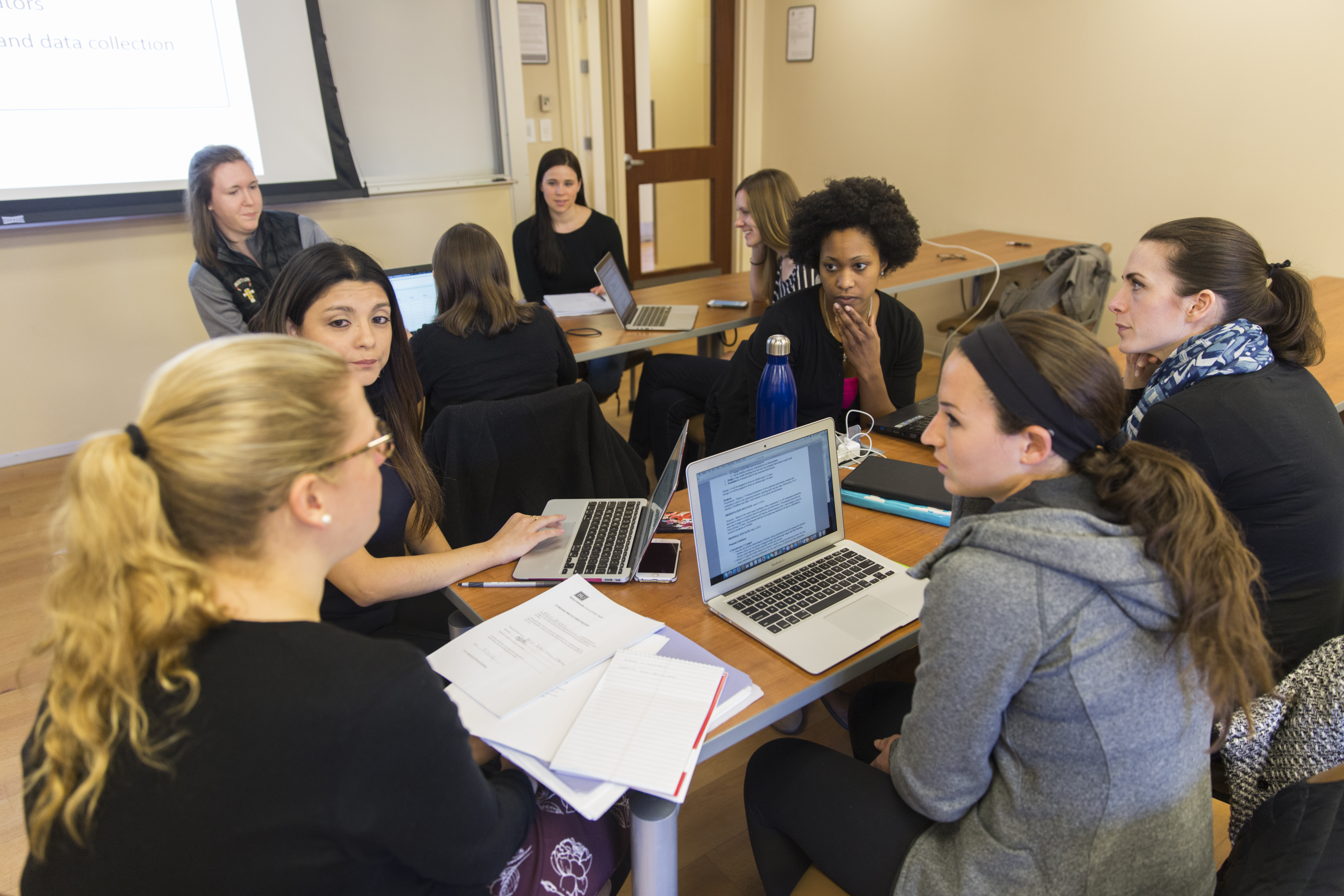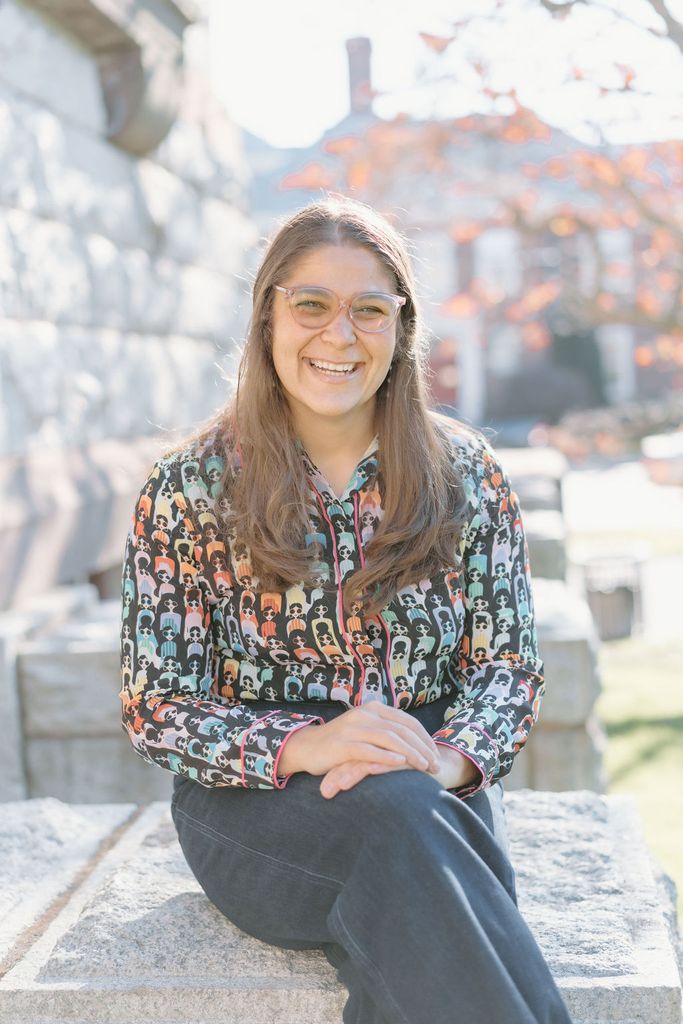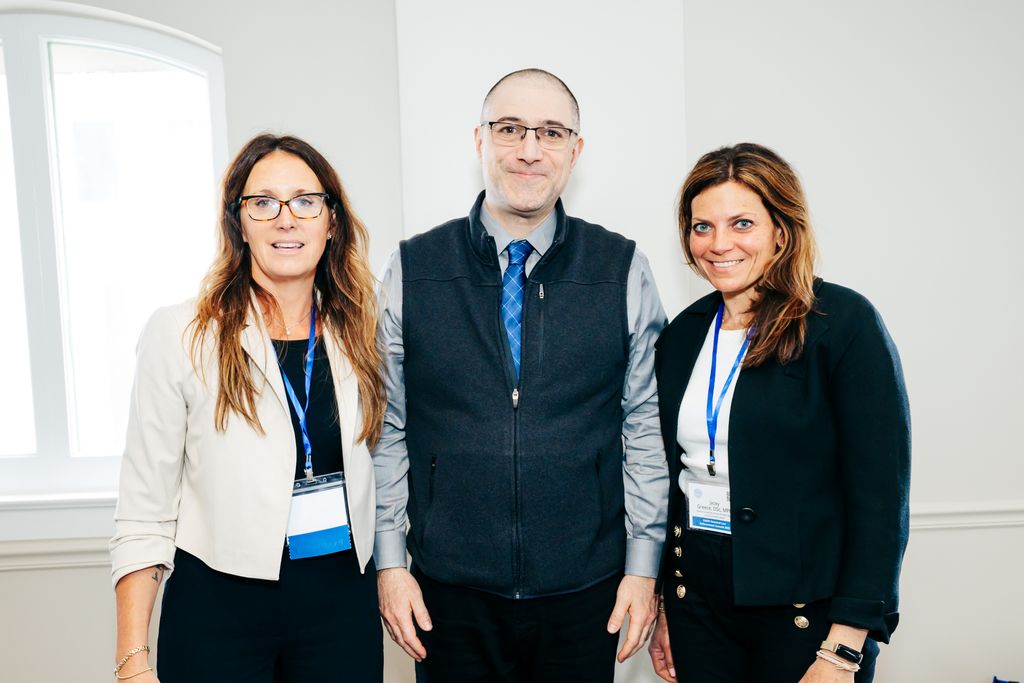Practice-Based Teaching: A “Win-Win” for Students and Community Organizations.

SPH File Photo: Student teams work on a class project together.
Practice-Based Teaching: A “Win-Win” for Students and Community Organizations
A new study led by Jacey Greece and alum Marissa Varrasso details the benefits of sustainable, academic-community partnerships, both for students and collaborating public health agencies.
When Marissa Varrasso (SPH’22) enrolled in the MPH program at the School of Public Health in 2020, she knew that gaining practical skills was her main goal in continuing her education. However, after beginning the program online during the pandemic, Varrasso initially felt a disconnect between her studies and their real-world applications. That changed when she took a course with Jacey Greece, clinical professor of community health sciences. The course challenged Varrasso and her peers to solve a real-life problem for a partnering public health organization. Suddenly, her vision for her MPH came into focus.

“Jacey’s class was the first class where I felt connected to the larger community and able to engage,” says Varrasso, who continued to work for Massachusetts Disabled Persons Protection Commission Sexual Assault Response Unit while studying community assessment, program design, implementation, and evaluation at SPH.
Greece’s course Designing Strategic Interventions and Communications to Advance Public Health (SB806), is one of several offerings at SPH that center collaboration between students and professionals at public health agencies. Through this pedagogical approach known as practice-based teaching (PBT), SPH students have completed more than 150 projects, spanning 18 countries, for dozens of public health partners.
While in Greece’s class, Varrasso and her peers collaborated with Meredith Hurley, director of public health and clinical services at the Town of Winthrop health department, to address community trauma. Together, the students completed a literature review on the problem; presented a program proposal complete with a logic model, timeline, and budget; recommended a communications plan; and identified $50,000 in potential grant funding to realize the project. Varrasso was so enthused with the work that when the semester ended, she continued to collaborate with Greece and Hurley, submitting a grant proposal on Winthrop’s behalf and co-authoring a case study on their collaboration.
“The collaboration with BUSPH has exponentially increased our capacity in multiple realms: communications, grant writing, data collection systems—while also adding the validity of external evaluation and an association with a world-renowned institution.”
Meredith Hurley, director of public health and clinical services at the Town of Winthrop health department
The case study, published in the journal Health in January 2025, examines the semester-long process of delivering PBT according a framework called PBT STEPS previously co-developed by Greece and James Wolff, adjunct associate professor of global health. The study also evaluates the post-course benefits of the partnership to all stakeholders, adding to an already robust body of evidence on the utility of PBT, regardless of whether it is delivered in-person, hybrid, or fully virtually, to address resource and workforce gaps by positioning students to apply their skills to communities’ most pressing public health challenges.
“The ways students productively engage in learning change, the methods for effectively delivering education change, and the competencies required by the workforce in the field of public health change, so our approach to teaching should be flexible, adaptable, and appropriate. We should practice what we preach – we evaluate programs and policies in public health, so why shouldn’t we be evaluating pedagogy?” says Greece. “Our research has demonstrated that no matter the mode of delivery, and across many public health disciplines, as long as you consistently follow the PBT STEPS model, beneficial and sustainable outcomes are achieved for students, faculty, the school, and collaborating partners.”
Greece has partnered with the Hurley and the Town of Winthrop on PBT-focused courses for going on ten years. The town’s nationally recognized Community & Law Enforcement Assisted Recovery (Winthrop CLEAR) program, which aims reduce opioid overdose fatalities by securing a pathway to mental health and substance use disorder treatment for individuals seeking support, was first evaluated through a 2018 classroom collaboration. Hurley credits SPH students with helping her and her colleagues at the Winthrop Police Department to build a strategic plan for CLEAR’s long-term sustainability.

“Working in a small municipal government structure, I was seeking mentorship and insight from other public health professionals that often does not exist at the local level. Most often, local public health works in isolation,” says Hurley. “I reached out to all of the schools in Boston and Jacey was the one who reached back out! The partnership the first semester completely exceeded my expectations of the students and of the course. Since my first experience with SB806, our partnership has evolved into numerous semesters of work with student projects, grant applications, funded projects, publications and presentations.”
Greece has continued to serve as an evaluator for Winthrop CLEAR, recently presenting their results at the Police Assisted Addiction & Recovery Initiative 2025 National Law Enforcement Summit, where Hurley and her colleagues accepted a leadership award in recognition of their work on the program.
“The collaboration with BUSPH has exponentially increased our capacity in multiple realms: communications, grant writing, data collection systems—while also adding the validity of external evaluation and an association with a world-renowned institution,” says Hurley. “What a support it was during the COVID-19 pandemic to have a trusted public health partner to navigate such uncertainty. This is just as important today as we all navigate such uncertainty in our field.”
Hurley and Greece reprised their collaboration again this spring, this time as co-instructors on a practice-based module of SPH’s Online MPH program. A virtual-friendly alternative to the traditional practicum where students secure internships with external organizations, the fifth module of the Online MPH program brings a partner organization to the students, leveraging the PBT model to embed the practicum experience directly into the curriculum.
“These academic-community partnerships can be really difficult to establish, but anything worth doing and worth doing well takes hard work to initiate and sustain,” says Greece. “At the end of the day, important work often does not get done without these partnerships. Our field does not have the luxury to work in silos—we just do not have the resources. Whether we collaborate in person or virtually, research shows that these partnerships contribute to our collective growth and enhance our ability to address complex issues, which is essential right now. They help communities. They help students. It’s a win-win.”
In addition to SB806, where Greece, Hurley, and Varrasso first met, SPH offers several other courses leveraging academic-community partnerships, including Implementing Health Programs in Developing Countries (GH743), Using Mobile Technologies to Improve Health Outcomes (GH806), Operations Management in Healthcare (GH832), and Program Design for Global Health (GH744).
Greece points to her former student and study co-author as a living testament to the power of PBT. Today, Varrasso works as program manager of community violence initiatives at the Massachusetts Executive Office of Health and Human Services. She credits her selection for the position to the skills she developed under the PBT model, “I spoke about [Greece’s] class and the collaboration with Winthrop—the research skills I gained, the grant application I wrote—in every job interview I had,” she says.
